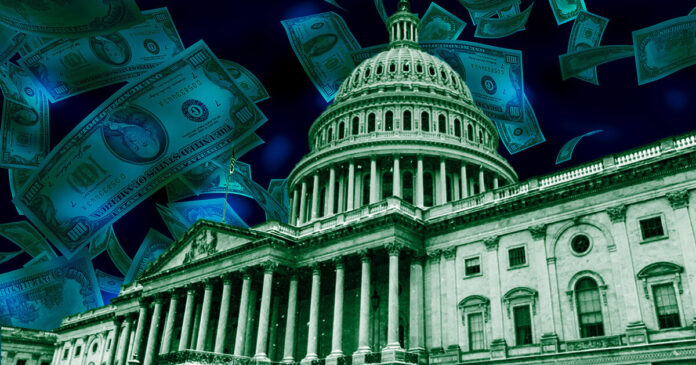A coalition of US lawmakers penned a letter to top government officials on April 28 expressing urgent concern over the use of digital currencies like Tether (USDT) by countries such as Russia, Iran, and North Korea to bypass international sanctions.
The letter, signed by Senators Elizabeth Warren (D-Mass.) and Roger Marshall (R-Kan), was addressed to Secretary of Defense Lloyd Austin, Secretary of the Treasury Janet Yellen, Under Secretary for Terrorism and Financial Intelligence Brian Nelson, Director of the Financial Crimes Enforcement Network Andrea Gacki, and National Security Advisor Jake Sullivan.
The lawmakers highlighted recent reports, including a detailed Wall Street Journal article that claimed the stablecoin Tether has become crucial to Russia’s military operations, facilitating transactions despite sanctions and global financial restrictions.
The urgency conveyed in the letter reflects a growing consensus among U.S. leaders that the regulatory framework surrounding cryptocurrencies needs strengthening to address the sophisticated methods rogue nations employ to evade sanctions.
Sanctions evasion
Lawmakers cited numerous instances where Russia used Tether to acquire dual-use technology, which contributed to sustaining their military actions in Ukraine.
Despite the Treasury’s sanctions against “Russia’s preferred trading exchange, Garantex,” the platform reportedly continues to process substantial amounts of crypto transactions.
The ongoing issue has prompted US officials to review more than $20 billion worth of crypto transactions potentially linked to Russian exchanges post-sanctions. The letter also brings to light concerns over the digital ruble and ransomware attacks as alternative methods for Russia to circumvent sanctions.
Senators also linked crypto to Russia’s purchase of weapons from China, stating that Russian arms smugglers use crypto to “side-step” US sanctions.
Further, the letter reveals the broader implications of digital assets in global conflicts, including North Korea’s theft of billions in crypto assets to fund their nuclear ambitions and Iran’s use of digital currencies to finance groups designated as terrorist organizations by the U.S.
In response to these concerns, lawmakers are asking for a detailed briefing on the actions taken and potential strategies to mitigate the risks associated with the use of crypto in sanction evasion. They emphasize the need for additional legislative and regulatory tools to effectively combat these challenges and safeguard national security.
Earlier developments
The Treasury’s November letter made two broad requests for new authority — the creation of a secondary sanctions tool aimed at regulating crypto exchanges and fintech services used in terrorism and the closure of loopholes that address the use of crypto in illicit activities.
The letter also sought to confirm that the Office of Foreign Assets Control (OFAC) should have authority over USD stablecoin transactions that do not have US touchpoints.
Warren previously highlighted the Treasury’s request for additional authority over crypto in an April 17 letter, writing that any new legislation should include the entirety of the earlier request and that other regulatory frameworks would allow stablecoins to further penetrate the banking system.
Warren is known for her numerous attempts to regulate crypto, primarily through her proposed Digital Asset Anti-Money Laundering Act.
Mentioned in this article
Credit: Source link






















 Bitcoin
Bitcoin  Ethereum
Ethereum  Tether
Tether  Solana
Solana  XRP
XRP  Dogecoin
Dogecoin  USDC
USDC  Lido Staked Ether
Lido Staked Ether  Cardano
Cardano  TRON
TRON  Avalanche
Avalanche  Shiba Inu
Shiba Inu  Wrapped Bitcoin
Wrapped Bitcoin  Wrapped stETH
Wrapped stETH  Toncoin
Toncoin  Sui
Sui  WETH
WETH  Bitcoin Cash
Bitcoin Cash  Chainlink
Chainlink  Pepe
Pepe  Polkadot
Polkadot  Stellar
Stellar  LEO Token
LEO Token  NEAR Protocol
NEAR Protocol  Litecoin
Litecoin  Aptos
Aptos  Wrapped eETH
Wrapped eETH  Uniswap
Uniswap  USDS
USDS  Cronos
Cronos  Hedera
Hedera  Internet Computer
Internet Computer  Ethereum Classic
Ethereum Classic  Bonk
Bonk  Bittensor
Bittensor  Render
Render  Ethena USDe
Ethena USDe  POL (ex-MATIC)
POL (ex-MATIC)  WhiteBIT Coin
WhiteBIT Coin  Dai
Dai  MANTRA
MANTRA  Artificial Superintelligence Alliance
Artificial Superintelligence Alliance  dogwifhat
dogwifhat  Arbitrum
Arbitrum  Monero
Monero  Stacks
Stacks  OKB
OKB  Filecoin
Filecoin 
